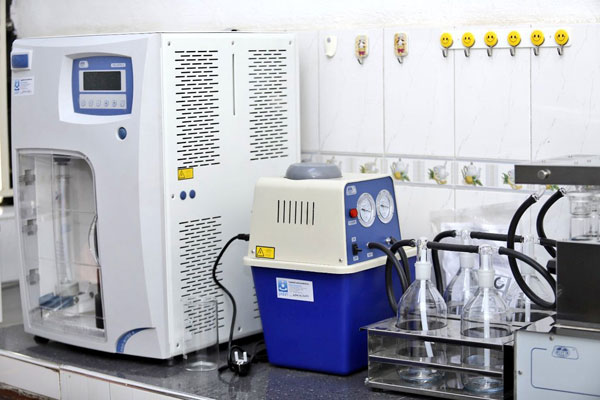Prime
Food regulator is very welcome to save lives

Author: Karoli Ssemogerere. PHOTO/HANDOUT
What you need to know:
Uganda’s popular snack, grasshoppers, beef stock are adulterated using formaldehyde, a chemical used to preserve dead bodies.
In the early 1980s, a young girl had gone to Maryhill High School in Mbarara. She had done sciences at A-Level, but was neither interested in human beings or animals as a subject, she was interested in food. Her parents and mine were brainstorming where she should go to school.
There was a course offered in Nairobi that studied food processing and technology. This was years before Food Science Technology was introduced at Makerere. This girl packed her bags for Nairobi and began studying Food Science Technology. It may even have been at a diploma level initially. She returned to Uganda and began making cheese, yoghurt and other foodstuffs. She was never overweight.
Her career grew with a close association with Land O-Lakes, a big company in Michigan in the food business. Her career took her to many places including next door in Rwanda and later in Zambia at COMESA.
When news broke that Uganda would finally regulate food and agricultural inputs in a formal way, I thought about her. Living on an urban farm and now an urban forest, I have noticed something terribly has gone wrong with farm-inputs, food supply chain.
In the fisheries sector, overfishing, pollution from stormwater, effluent discharge and other hazards have made fish unaffordable to ordinary Ugandans. We have focused on export at the expense of the welfare of our fellow citizens. The commercialization of seed and genetically modified organisms have exposed farmers to a high-agro-chemical input, fertilizer heavy production.
Defective planting materials die; some before germination. The biggest entry point of chemicals in the bloodstream is at the farm where desperate farmers have to spray anything for the GMO food to survive. It is easy to see; what is happening in the marketplace, dry beans cost Shs 6,000; groundnuts Shs10,000. In the recent heavy rains, legumes simply died, pushing up the prices of beans, groundnuts and peas.
In processed food, the war in Ukraine and its effect on the most popular junk food in Uganda, the chapati has been notable. And so has the taste of the chapati and its meal-form the rolex. One supermarket chain, Quality, saw its chapati rise from Shs1,000 to Shs 1,500; another popular baker, Breadhouse rose from Shs1,000 to 1,300.
The upmarket supermarket where kaveera has been ditched for paper bags, never mind making paper also involves chemicals has the chapati priced at Shs1,700. The rise in the price of the Rolex was featured in the New York Times feature, Ukraine War squeezes street snack in Uganda (February 23, 2023). The gray old lady incorrectly labeled the rolex as a snack.
In Uganda’s expensive life, the rolex is a self-contained meal, chapati and grasshoppers are the snacks. The article captured correctly that the ingredients of the rolex were changing. For the chapati, the composition of wheat has been bothering the Uganda National Bureau of Standards as millers proposed to add cassava flour to mitigate skyrocketing wheat prices. Retail prices for wheat-flour have nearly doubled from Shs 4700 for the Unga 2 kg pack to Shs8700.
Unfortunately for UNBS, it does not have the capacity to police Uganda’s enormous food sector. It also does not have the capacity to check whether the wholesale or retail sub-sectors are adulterating food contents.
Uganda’s popular snack, grasshoppers, beef stock are adulterated using formaldehyde, a chemical used to preserve dead bodies. DDT is still on the market years after being banned in America and Europe. Policing drugs is already a big enough task. There is a big industry that mixes genuine products with contraband.
In the last decade, the coffee industry was hit by nursery operators who mixed genuine planting material with FAQ- coffee beans, punishing farmers who received these materials for free with low-yielding coffee bushes. A trip to the Uganda Cancer Institute where young and old are grasping for life, is a reminder that the causes are many, to be handled one at a time by dealing with food this time.
Mr Ssemogerere is an Attorney-At-Law and an Advocate. [email protected]




